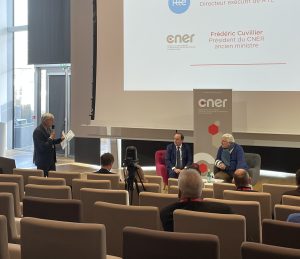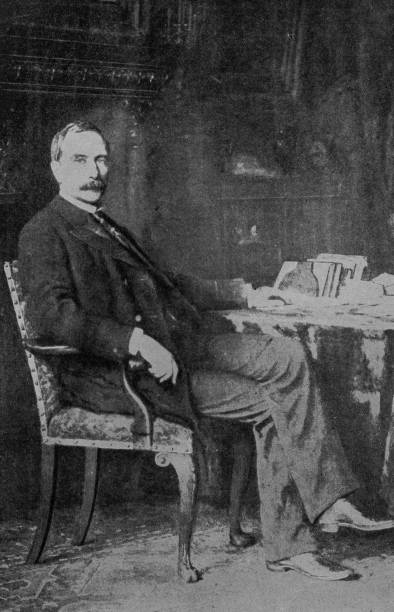John Davison Rockefeller: the epitome of the American self-made man
Born on 8 July 1839 in Rich Ford, New York, John Davidson Rockefeller grew up in a modest family that lived off the produce of their farm and the lucrative business activities of his father, William Avery Rockefeller.
William Avery Rockefeller, a con man who travels the western countryside with his vials of elixir supposed to cure people, introduces his children to his practices. Thus, John Rockefeller is quickly impressed by his father, who instils in him a sense of business and the lure of profit.
At the age of 16, John climbed the corporate ladder and then set up his own business, focusing on paraffin refining, an area that could provide a steady income. His thirst for success and his persistence meant that by the age of 25 he was already running one of America’s largest refineries.
The Standard Oil Company: the rise of the Rockefeller empire
As the oil industry is plagued by overproduction and falling prices, John Rockefeller had to find a way to guarantee the survival of his company. He created the Standard Oil Company. He wanted to control the entire oil industry, from the extraction of oil to its transport and refining.
Thanks to his persuasive skills and sometimes questionable pressure tactics, within a few months the Standard Oil Company bought out the other refineries in Cleveland, Pittsburg, Philadelphia, and New York.
To face up to the competition, it did not hesitate to use all the means at its disposal. For example, he organized a shortage of the chemical products needed for refining.
In 1879, Standard Oil refined 90% of the United States’ oil, making it the world’s only producer of paraffin. Thus, at the age of 40, John Rockefeller had the upper hand in the oil industry.
A monopoly that is increasingly disturbing…
John Rockefeller thus found himself in a monopoly situation, he monopolized all the profits, and this began to disturb. So, in 1890 Congress passed the Chairman’s Antitrust Act, the first federal law specifically aimed at dismantling standard oil, fighting against the monopoly state.
President Theodore Roosevelt then launched a fierce battle and legal action in 1906 against Rockefeller for exercising excessive control over the various phases of the American oil industry.
The legal battle lasted several years and was highly publicized. It ended on 15 May 1911 when the Supreme Court decided to break up Standard Oil into the thirty or so companies we know today as Chevron and Esso.
This legal battle benefited John Rockefeller, whose fortune soared. Indeed, the various companies in which he remained a shareholder were worth much more than the former one.
Rockefeller : a forward-thinking philanthropist
The founder of the Rockefeller dynasty managed to accumulate a fortune of $340 billion from oil, making him the richest man in the world. As a result of this fortune, John Davidson Rockefeller decided to engage in philanthropic activities, becoming the largest donor of all time in the fields of education, health and heritage.
When he died in 1937, his son John Davidson Rockefeller junior continued his father’s philanthropic activities, notably in the reconstruction of the cathedral of Reims damaged by enemy bombing during the First World War.
Rockefeller then initiated the philanthropy that is today an integral part of the codes of American billionaires. According to the latest estimates by Forbes, the top 25 American philanthropists have donated a total of $169 billion during their lifetime. They include Warren Buffett, Mackenzie Scott and Bill Gates.










